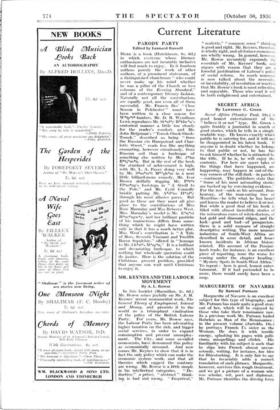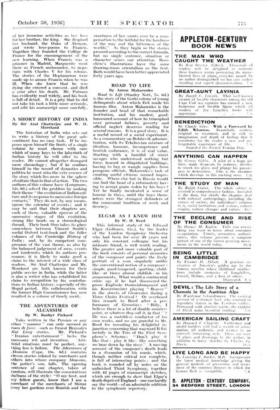MARGUERITE OF NAVARRE
By Samuel Putnam
Marguerite of Navarre is an excellent subject for this type of biography, and Mr. Putnam has made quite a good story out of her, which will be enjoyed by those who take their renaissance raw. In a previous work Mr. Putnam hailed Rabelais as Man of the Renaissance ; in the present volume Varrokis, 16s.) he portrays Francis I's sister as the Woman. He does it with terrific energy, splashing his pages with galli- clams, misspellings and clichés. His familiarity with his subject is such that he slips into French almost uncon- sciously, writing, for instance, bas bleu for Bluestocking. It is only fair to say that he invariably adds a correct translation of such phrases. Marguerite, however, survives this rough treatment, and we get a picture of a woman who was scholar, wit, poet and diplomat. Mr. Putnam identifies the driving force of her inunense activities as her love for her brother, the king. She despised her husband, the Duke of Alencon, and wrote love-poems to Francis. Together they founded the College de France for the encouragement of the new learning. When Francis was a prisoner in Madrid, Marguerite went there as French ambassador, to nego- tiate with Charles V for his release. The stories of the Heptameron were made up to amuse Francis when he was ill. When she knew that he was -dying she entered a convent, and died a year after his death. Mr. Putnam has evidently read widely, and his book is full of detail. It is a pity that he did not take his task a little more seriously, and edit his manuscript more carefully.





















































 Previous page
Previous page